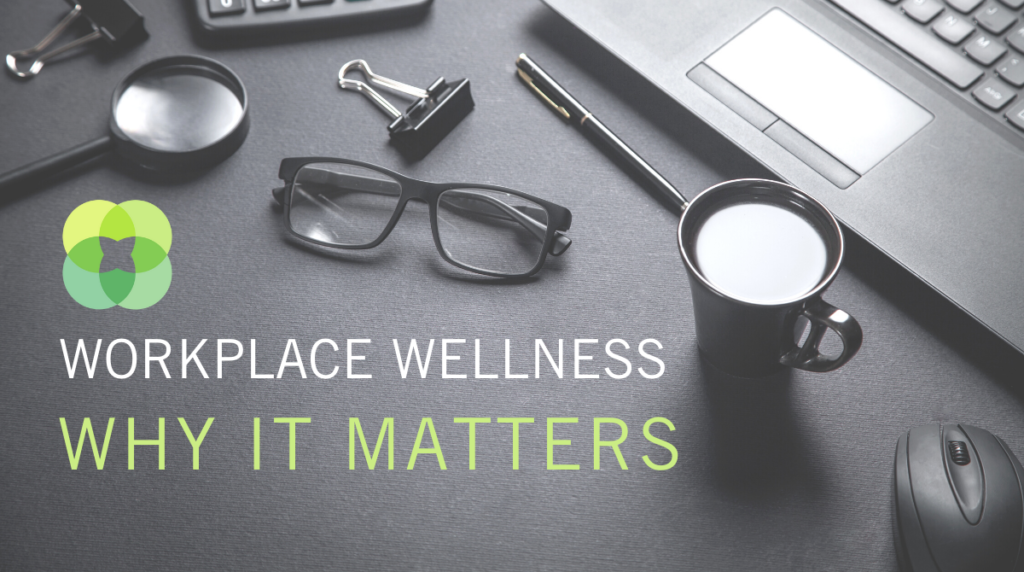Workplace Wellness: Why It Matters

Meet Sally.
Sally eats breakfast in her car or at her desk when she gets to work …if she eats breakfast at all. She forgets to pack lunch most days, so she is at the mercy of food available at or around her office. Sometimes Sally works straight through lunch; other times, she eats lunch at her desk, working or zoning out on the internet not realizing what or how much she is eating.
Because of her insufficient food choices throughout the day, Sally finds herself in an afternoon slump with a craving for a sweet treat or another caffeinated beverage – or both.
Guess what? Sally works for you. Or maybe Sally is in the cubicle next to you. Or maybe, just maybe, Sally is you.
Regardless of who your Sally is, here are a few reasons we all owe it to her to have wellness programs available at her worksite.
We spend half of our waking lives at work
Environmental influences are one of the largest determinants of health. A report compiled by the U.S. Department of Agriculture’s Economic Research Service has a few key findings that demonstrate the issue:
- People have self-control problems when choosing foods.
- Food decisions are often based on emotion, not rational thought.
- External cues can have a major effect on the food selected, the amount consumed and the eater’s perception of how much was consumed.
- A lot of people consume breakfast, lunch, snacks and beverages at work every single day.A healthy food environment at work that positively influences consumption could help build habits that flow over into employees’ personal lives.
We are a product of the people we surround ourselves with the most
Motivational speaker Jim Rohn teaches us that we are the average of the five people with whom we spend the most time. If an unhealthy workplace is contributing to an unhealthy workforce, we bring each other down. Conversely, a health-conscious work environment could bring us a notch closer to optimal.
Stress is killing us
Job strain – defined as high external demands with low levels of control or reward – has been linked to self-reported ill health, adverse mental health outcomes and a spectrum of chronic diseases, from heart disease and diabetes to rheumatoid arthritis and depression.
If we could flip the paradigm where the workplace was a place for stress reduction – or at least a place that provided meaningful resilience building and coping skills – we could make a huge impact on the prevalence of chronic disease.
As employers, we have the opportunity to shift the course of history by getting focused on providing the healthiest environment possible during the work day.
As my series on corporate wellness programs continues, I will be leading you through what you need to know, what the research is telling us, some of our personal experiences, and all the wrong things we learned along the way.
Are you up for the challenge?
Sally will thank you.

